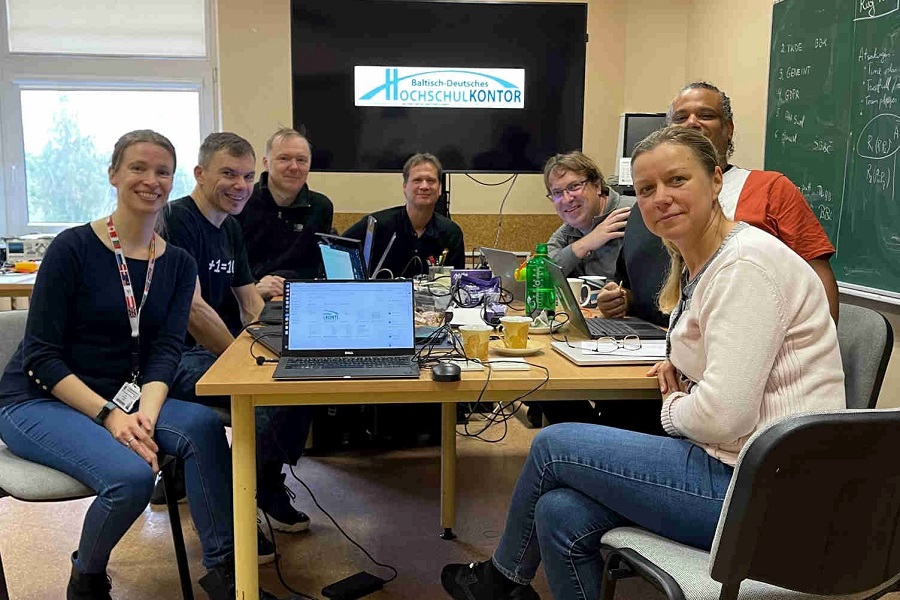
In September, the Cybersecurity Laboratory of the Institute of Computer Science, together with the General Jonas Žemaitis Military Academy of Lithuania, organised a three-day cybersecurity event as part of the project "Increasing Security Awareness: the Invisible Power of Digital Traces". Guests from Albstadt-Sigmaringen University (ASU), Vidzeme University of Applied Sciences (ViA), Tallinn University of Technology (TTU), and the Norwegian University of Science and Technology (NTNU) attended the event.
Authors: Agnė Brilingaitė, Rimantė Andrijauskaitė, Austėja Bauraitė, (Cybersecurity Laboratory, Institute of Computer Science)
One of the aims of the project was to engage students in research activities and highlight the cybersecurity challenges. Students of the VU Faculty of Mathematics and Informatics from the Information Technology and Computer Modelling study programmes and international exchange students and students from the German partner institution attended the event. The project and the Erasmus+ programme funded the German students' visit.
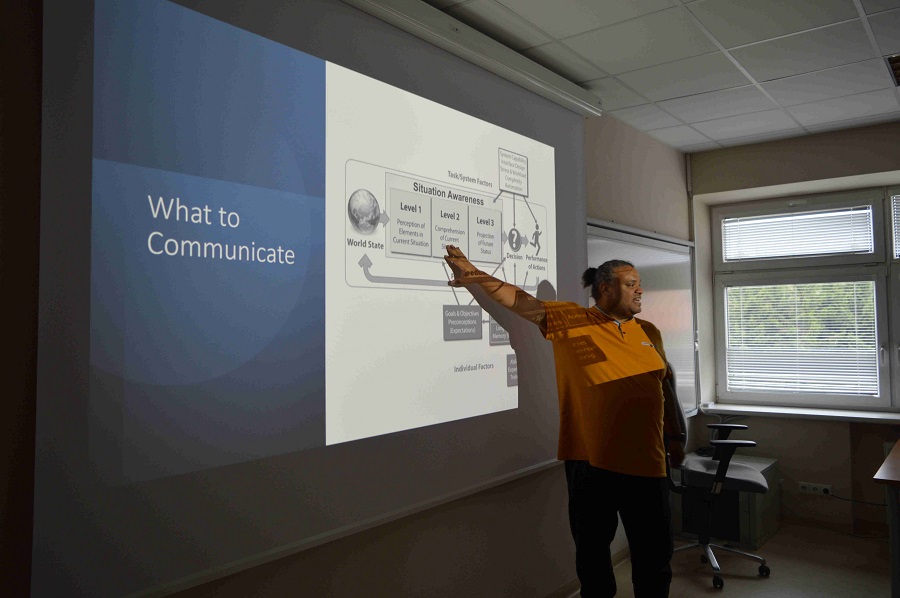
LKA allowed the participants to try out the laser shooting range. After this activity, the participants played an interactive cybersecurity scenario related to the timely notification of the information security manager about a cyber incident. Prof. Dr Aušrius Juozapavičius (LKA) prepared the scenario and commented on the competencies demonstrated by the participants. Prof. Dr Olaf Maennel from Tallinn University of Technology observed how the participants made decisions based on the presented system artefacts and the described scenario conditions as the developed scenario reflects the possible challenges of a cyber professional in making decisions according to the planned cyber incident handling procedures.
During the event, Prof. Dr Stefan Sütterlin (ASU) highlighted the challenges related to internal threats in organisations due to employee dissatisfaction with work or management principles. Assoc. Prof. Dr Ricardo G. Lugo (NTNU) gave an interactive lecture on communication in cyber operations centres and communication barriers between IT and non-IT personnel. Senior researcher Assoc. Prof. Dr Ginta Majore (ViA) talked about digital twins in eco-cyber-physical systems and the security concerns in these systems - remote sensors indicate what actions the operator has to take. Therefore, it is crucial to carry out proper simulations and to have measures in place to protect the sensors.
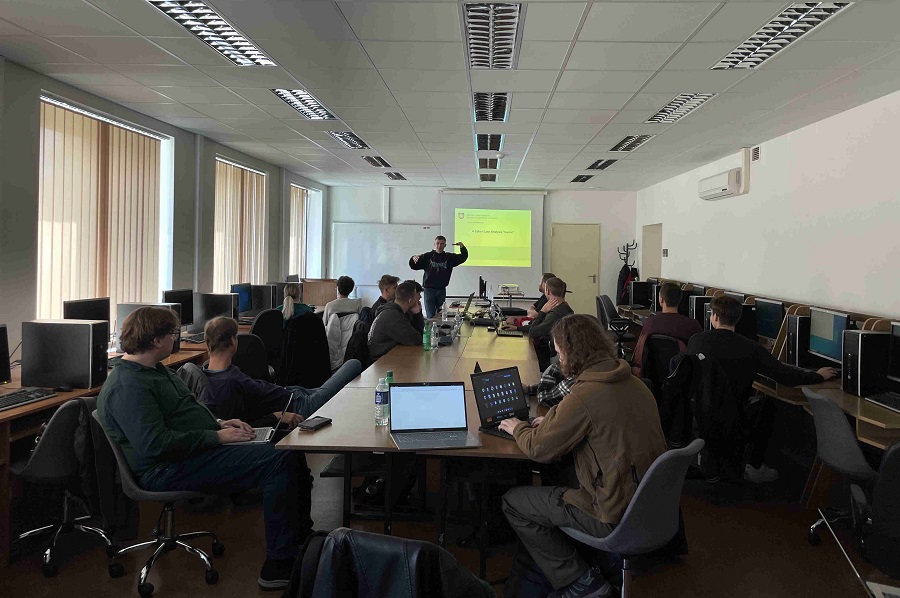
"The funding option of the Baltic-German Hoschulkontor enabled us to mobilize additional funding from the EU/Erasmus and gave our students a unique opportunity to meet peers, learn new technical skills, and gather a truly international experience. Cooperation across borders is crucial and will be central for the upcoming generations. But traditional education is still too focused on domestic issues and does not offer sufficient room for new experience," - Prof. Dr Stefan Sütterlin lists the advantages of implementing the project. And he continues emphasizing that this grant and exchange led to new partnerships and ongoing collaboration both on a student and academic level. "It was thus a great opportunity to develop ourselves and to create a foundation for fruitful future collaboration in education and research," – says the professor.
The project will end next month. Therefore, the project team reflected on the activities of the last half year. Prof. Dr Aušrius Juozapavičius says: "It was a pleasure to visit Germany and hear them present cybersecurity topics they found interesting. Seminars back in Lithuania were no less exciting when Vilnius University students presented their research on cutting-edge topics. I'm sure the students from both sides benefited greatly from meeting each other".
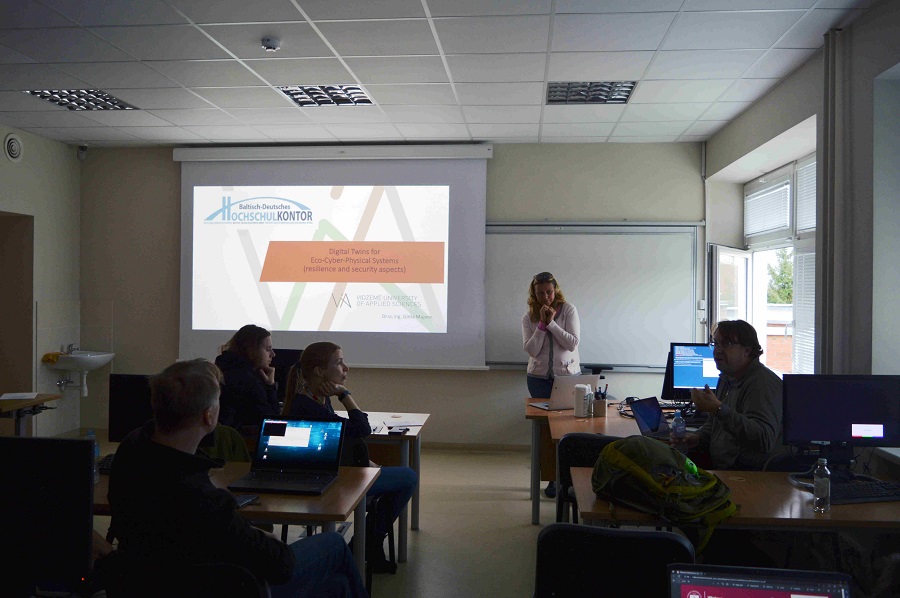
Head of the Cyber Security Laboratory, Dr Linas Bukauskas emphasises that such events provide the community with a better understanding of the scientific activities carried out at the University, reveal the scientific challenges in the subject area, and allow the students to develop general intercultural communication competencies. "I am delighted that our students, exchange students and students from Germany actively participated in the lab events. It was a unique chance to discuss the latest cybersecurity challenges, vulnerabilities and new technologies - from the MS Teams GIFshell vulnerability to post-quantum encryption techniques".
This project of the Baltic-German University Liaison Office is supported by the German Academic Ex-change Service (DAAD) with funds from the Foreign Office of the Federal Republic of Germany.
More information can be found here.
Ten years ago, the European Union declared October a Cyber Security Month. The aim of the cam-paign is to raise awareness of the threats in cyberspace and to educate the public in order to im-prove cybersecurity competences, starting with cyber hygiene.
2022-10-25
